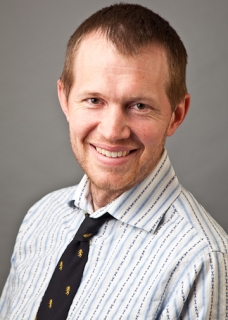English Department Debuts English Writing Fellows Program
When the English Department lost critical funding for tutors for its acclaimed Supplemental Writing Workshop (SWW), necessity proved the mother of invention.
The department debuted a new English Writing Fellows Program this spring, which not only addresses the budget shortfall, but expands the department’s previous tutoring offerings.
Previously, in-class tutors served only students enrolled in SWW sections of Composition I and II courses, which provide students an extra hour of class time, primarily in the form of workshops, to work one-on-one with an instructor and student tutor.

The new English Writing Fellows Program continues to pair talented student-writers with students in SWW sections, but also provides support to students enrolled in English as a Second Language SWW courses and standard composition courses. The campus Educational Opportunity Program (EOP) contributed to the expansion of the tutoring program by providing a number of tutors for EOP students enrolled in composition courses.
The department adapted its upper-level “Theories of Writing” class to serve as a program prerequisite. The course addresses a variety of writing studies questions, including digital technology, power issues and identity, as well as new content on writing tutoring.
Seven seniors completed the course in the fall and were accepted into the Writing Fellows Program. They are currently completing a three-credit fieldwork experience under the tutelage of composition program instructors Rachel Rigolino, Nikki Wilson-Clasby, David Alfieri and Kathena Hasbrouk.
The writing fellows also meet with fieldwork supervisors (Composition Program Coordinator Matt Newcomb shares duties with department colleagues Andrew Higgins and Vicki Tromanhauser) and write reflective essays about their experiences.
Newcomb said the program’s structure allows students to connect theory to practice. In their essays, students reflect on the experience of working with students and “how these experiences connect with the way they think about writing or even theories of writing they might have touched on in class,” Newcomb noted.
Because the composition program instructors have the flexibility to determine how their assigned tutors engage with their classes, the reflection essays will likely address very different experiences.

Rigolino, the SWW Coordinator, was paired with Danielle Mancini, a senior creative writing major, for a spring Composition II course. Together, they developed five seminars on topics such as time management and oral report skills, which Mancini leads with small groups on campus outside of class hours. Mancini interacts with students whose schedules don’t permit them to attend the seminars in an online Blackboard discussion group. She also provides drop-in tutoring for those who need extra help.
Rigolino said her previous experience working with SWW tutors convinced her of the key role tutors play in composition students’ success. “An important part of it is not just the faculty member and the extra workshop hour, but the relationship the students build with the tutor. The tutor is a mediator and mentor,” she said.
Mancini said she most enjoys the peer-to-peer aspect of her work as a writing fellow. She acknowledged that students often feel intimidated asking questions in class, and believes that students feel more comfortable coming to her with questions about assignments.
Mancini, who had previous experience working with students as a Peer Academic Advisor and Peer Academic Success Coach, takes seriously her mission to help students develop their writing skills, which she believes are essential for success in the classroom and beyond.
“It’s not necessarily just about writing in college and getting good grades,” she noted. “Writing effectively and being able to communicate on a page are life skills.”
The fieldwork experience allows Mancini to sharpen her copy editing skills, which she’ll need for her dream job in editing and publishing.
“I want to work with other people’s writing and perfect other people’s writing. I want to help writers have the best version of their own writing that they can have,” she said.
